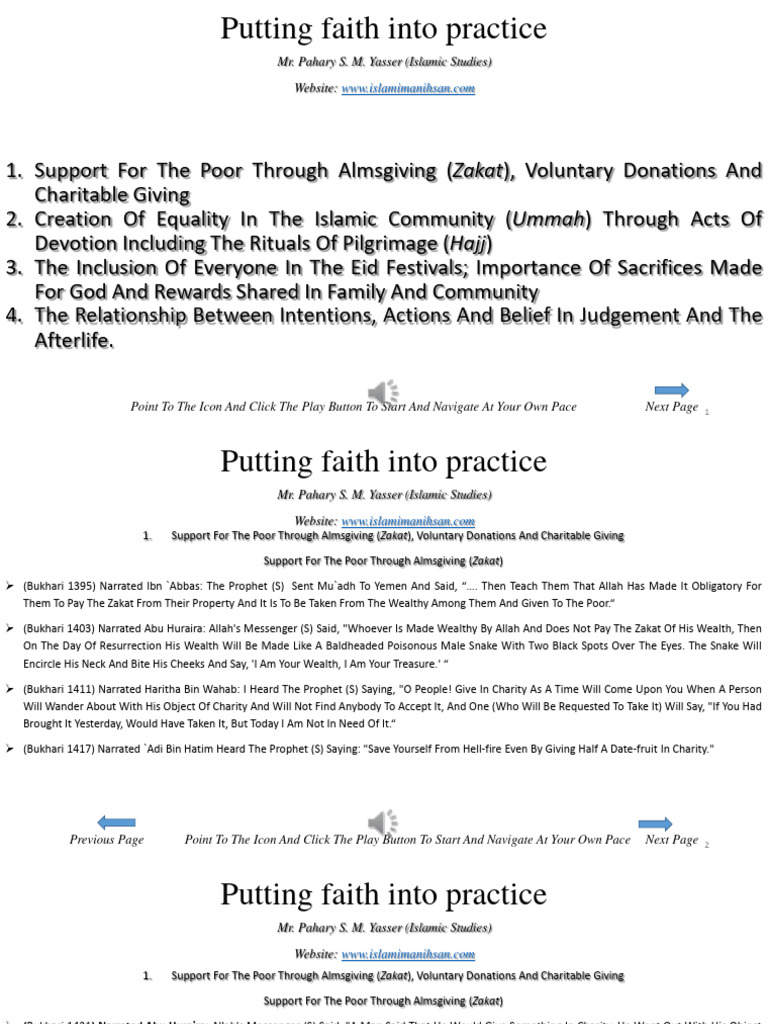Throughout the annals of spiritual development, the Bahá’í Faith emerges as a beacon of hope and unity, illuminating the path to collective and personal growth. This faith is not merely a set of abstract beliefs but a comprehensive framework that emphasizes the importance of translating belief into tangible action. The challenge, then, lies not in acquiring knowledge alone but in the artful integration of Bahá’í teachings into the fabric of everyday life.
What does it truly mean to ‘put faith into practice’? One might playfully inquire: if faith alone is a passive engagement, can a complex tapestry of actions woven from Bahá’í principles infuse vitality into our everyday interactions? The practical application of Bahá’í teachings often poses a multifaceted challenge that invites individuals to navigate their spiritual journey with intention and resilience.
One of the most potent Bahá’í teachings is the principle of the oneness of humanity. This doctrine challenges adherents to transcend societal barriers—be they racial, economic, or cultural. It implores individuals to consciously advocate for equality and to foster inclusivity within their local communities. To effectively embody this teaching, it is vital to engage in meaningful dialogue with those from diverse backgrounds. Community gatherings or interfaith forums can serve as rich opportunities for this engagement, providing a platform to foster deeper understanding and collaboration.
Additionally, Bahá’í teachings emphasize the importance of service to humanity, an intrinsic obligation that stems from the recognition of our collective interdependence. This service is not confined to grandiose acts; rather, it is enshrined in the small, everyday gestures that demonstrate compassion and kindness. Whether through volunteering at local shelters, mentorship programs, or even simple acts of kindness, the commitment to serve cultivates a spirit of humility and reinforces the interconnectedness of our global community.
Yet, the challenge remains: how can one consistently renew their dedication to these ideals? The answer resides in the mindful practice of reflection. Bahá’ís are encouraged to engage in regular self-assessment, contemplating their actions and their alignment with Bahá’í principles. This introspective process may include journaling or meditative practices that analyze one’s daily engagements. Such reflection assists in identifying areas requiring enhancement, fostering personal development aligned with the teachings of Bahá’u’lláh.
The transformative power of prayer in the Bahá’í Faith cannot be understated. It serves as a profound channel for spiritual sustenance and clarity. Through prayer, individuals can transcend mundane challenges, fostering a deeper connection to the divine. To effectively integrate this element into daily life requires intentional scheduling—setting aside dedicated moments for prayer and meditation, thereby cultivating a spiritual routine that reinforces faith in action.
Moreover, Bahá’í teachings champion the pursuit of knowledge, emphasizing the importance of continuous learning. The complexity of the world necessitates a proactive approach to understanding various realms of knowledge, including science, philosophy, and the arts. Such knowledge lays the groundwork for informed action, allowing individuals to navigate contemporary issues with sagacity and discretion. By fostering a culture of learning within communities, Bahá’ís can collectively influence societal paradigms towards progressive transformation.
Incorporating ethical principles into daily practices presents yet another challenge. This involves a conscientious commitment to integrity, honesty, and justice. Individuals must strive to embody these values not just in secluded environments, but in professional settings, marketplaces, and personal relationships. Upholding such integrity can sometimes confront societal norms that may not align with these teachings. However, it is precisely in these instances that the commitment to Bahá’í values shines most brilliantly, serving as a testament to the influence of faith in action.
Moreover, the concept of unity in diversity plays a critical role in the Bahá’í approach to conflict resolution. Each interaction, especially contentious ones, calls for patience and understanding, inviting one to see beyond the superficial differences that often provoke discord. Cultivating a mindset rooted in unity encourages individuals to seek common ground and embrace diverse perspectives. By doing so, conflicts can transform into opportunities for growth and mutual appreciation, essential aspects of community life.
In the face of adversity, the Bahá’í teachings also encourage resilience—a quality that can only be fostered through a steadfast spiritual foundation. The teachings remind individuals that trials and tribulations serve as catalysts for personal development. Therefore, embracing challenges with a positive outlook and a spirit of optimism further reinforces the commitment to live out Bahá’í principles.
Ultimately, putting faith into practice within the framework of Bahá’í teachings demands a holistic and persistent approach. It requires individuals to remain vigilant, ensuring that their thoughts, words, and actions resonate with the core tenets of the faith. As Bahá’ís grapple with the robust challenge of embodying these ideals in diverse environments, they will surely find themselves contributing to a more harmonious and just world.
Through collaborative efforts, individual integrity, and unwavering commitment to service, Bahá’í teachings can flourish and inspire others to embrace the vision of a united world. By diligently practicing these teachings, followers of the Bahá’í Faith actively engage with the transformative potential inherent in their beliefs, fostering a culture that uplifts humanity and enriches the spiritual journey of countless souls.
